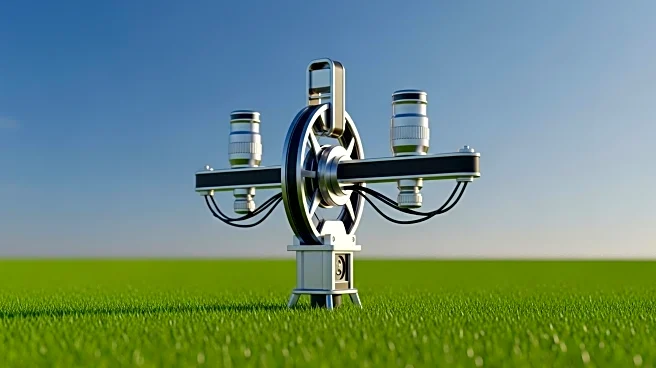What's Happening?
The automated data logging tools and systems market is projected to grow significantly, reaching nearly $12 billion by 2035. This growth is driven by the increasing adoption of precision agriculture, which utilizes IoT, AI, and cloud platforms to optimize farming operations. Automated data logging systems provide real-time insights into soil, crop, and weather conditions, enhancing resource management and decision-making. North America is expected to lead the market due to its advanced agricultural sector and strong digital infrastructure. The integration of smart sensors and connectivity into farm equipment is creating new opportunities for manufacturers and service providers.
Why It's Important?
The expansion of automated data logging tools in agriculture represents a shift towards data-driven farming practices, improving efficiency and sustainability. This growth is crucial for the agricultural industry as it addresses challenges such as water scarcity, rising input costs, and regulatory compliance. For farmers, these systems offer enhanced productivity and reduced labor dependency, while manufacturers benefit from new revenue streams through data subscriptions. The widespread adoption of these technologies is fostering collaboration between agriculture, technology, and sustainability sectors, transforming farming into a digitally integrated industry.
What's Next?
The market for automated data logging tools is expected to continue growing, with advancements in IoT-based platforms and multi-sensor logging units. As precision agriculture becomes more prevalent, stakeholders may focus on developing more sophisticated data analytics and AI-driven solutions. Government incentives for climate-smart farming and sustainability initiatives will likely support further adoption. The industry may face challenges related to infrastructure and data reliability, prompting ongoing innovation and investment in technology development.
Beyond the Headlines
The rise of automated data logging tools in agriculture highlights the increasing importance of technology in addressing environmental and economic challenges. This development raises ethical considerations regarding data privacy and the impact of digital transformation on traditional farming practices. As the industry evolves, stakeholders must balance innovation with sustainability and ethical standards, ensuring responsible use of technology in agriculture.










